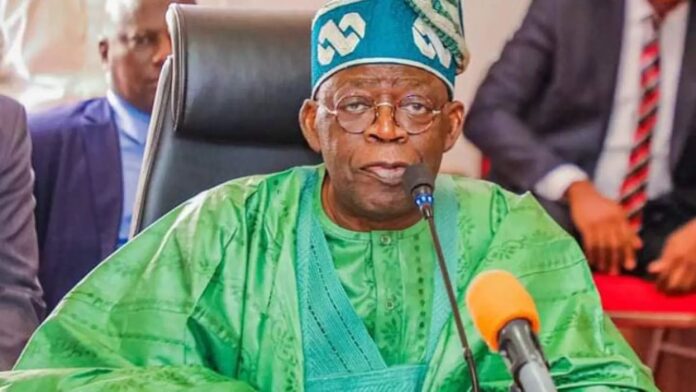Former President Olusegun Obasanjo has expressed sharp criticism against President Bola Ahmed Tinubu, condemning his handling of Nigeria’s socio-economic crisis.
While delivering a keynote speech at the Chinua Achebe Leadership Forum at Yale University in New Haven, Connecticut, Obasanjo did not hold back, accusing the current administration of what he termed “state capture.” He referred to Tinubu dismissively as “Baba-go-slow and Emi lo kan,” reflecting his dissatisfaction with the president’s governance.
In a statement released by his media aide, Kehinde Akinyemi, Obasanjo articulated his concerns, stating, “The more a nation is plagued by immorality and corruption, the deeper it sinks into chaos, insecurity, conflict, and disunity. The current state of affairs in Nigeria exemplifies this troubling pattern.”
He elaborated on the dire situation in Nigeria, lamenting, “The country is in a precarious state, as evidenced by the rampant corruption and mismanagement that has led to widespread insecurity, unrest among the youth, and overall stagnation. This is the reality under the leadership of Baba-go-slow and Emi lo kan.”

Obasanjo further asserted that Nigeria’s failing state status is apparent to anyone willing to acknowledge the consequences of its pervasive issues, including corruption, incompetence, and injustice. However, he emphasized that there remains hope for improvement.
Referencing Chinua Achebe’s influential work, “The Trouble with Nigeria,” published in 1983, he remarked, “The core issue in Nigeria is a failure of leadership. There is fundamentally nothing wrong with the Nigerian people, land, or resources. The problem lies in the reluctance or inability of leaders to accept their responsibilities and lead by example.”
He added, “This 41-year-old analysis of Nigeria’s leadership crisis remains relevant and insightful. It’s not as bleak as the assessment made by Robert Rotberg and John Campbell, two notable American scholars who argue that ‘Nigeria has long teetered on the precipice of failure.’ They contend that Nigeria’s inability to ensure the safety and security of its citizens positions it as a failed state of global concern.”
Obasanjo concluded by highlighting the significance of Nigeria’s stability for the broader African continent, asserting, “The peace and prosperity of Africa hinge on a stronger Nigeria, which is crucial for preventing the spread of disorder and militancy worldwide.”




